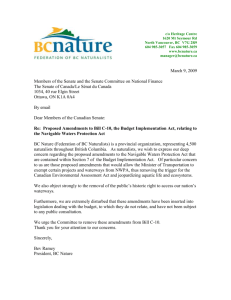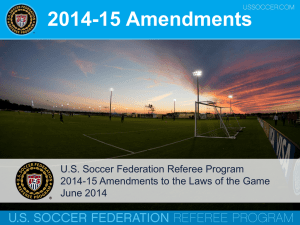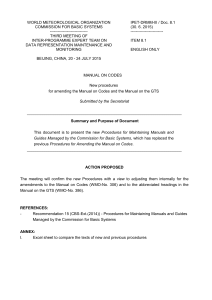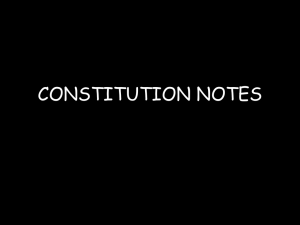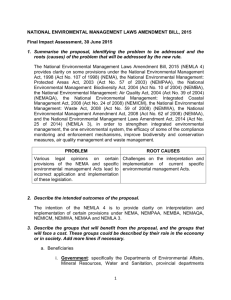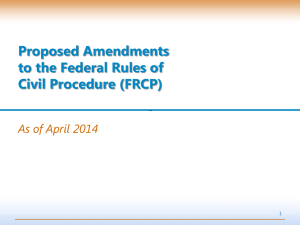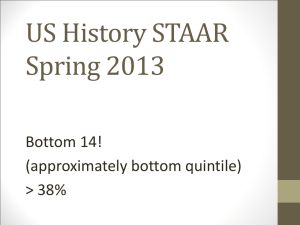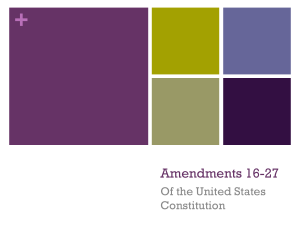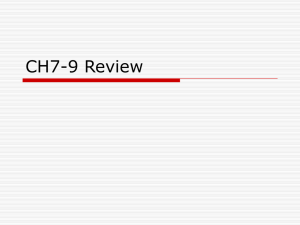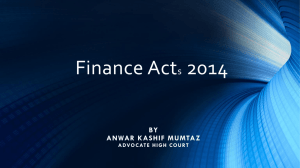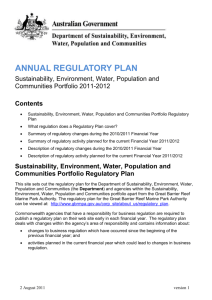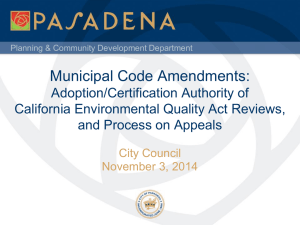Gov Unit 3 Notes
advertisement
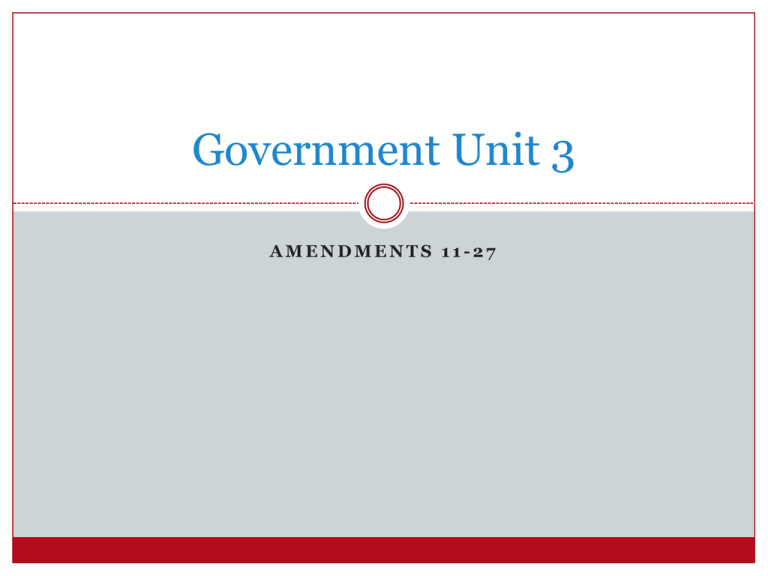
Government Unit 3 AMENDMENTS 11-27 Amendments 11-27 There are 17 other amendments not included in the Bill of Rights The rest of the amendments have been added from 1795-1992 The most important of these amendments deal with civil rights and voting. Amendments 11-27 11th- Lawsuits against states (1795) Federal courts are not to be used when a citizen of another state sues the state Must use state court Foreign countries cannot sue a state in federal court Ex. Norway suing Delaware in the Supreme court cannot happen Amendments 11-27 12th The President and Vice President are elected together. (1804) Kept them from being from two different parties and arguing constantly Also says that the House of Representatives picks if there is a tie Amendments 11-27 13th Abolishes slavery/ involuntary servitude (1865) Ended slavery and slavery as a result of debt Gives Congress right to make laws to enforce this Exception- Prisoners doing manual labor as a part of their sentence -Note: Guaranteed slaves freedom but not any rights Amendments 11-27 14th Rights of Citizens (1868) Gives people, born or naturalized in the United States, citizenship and the rights that come with it. Naturalized- becoming an American citizen by conforming to our laws and standards Amendments 11-27 15th Right to vote (1870) Gives citizens the right to vote Cannot be denied based on race, color or if you were a slave Gives Congress the power to enforce Grandfather laws, poll taxes and voter test were still allowed Note- Does not given women the right to vote Amendments 11-27 16th Grants Congress the power to tax income (1913) Was to help pay for government expenses 17th Provides election of Senators by the people (1913) Use to be elected by the state legislature Now citizens of that state elect senators Amendments 11-27 18th Sets up Prohibition Bans the sale, production and consumption of alcohol Only amendment repealed (21st) Was abandoned due to the increase of organized crime Amendments 11-27 19th Grants women the right to vote (suffrage) 1920 During WWI, women were working I the factories and were unable to vote Amendments 11-27 20th Changes the beginning dates for presidential and congressional terms (1933) Was a result of travel being faster and politicians could get to Washington DC quicker 21st Repeals Prohibition (1933) Prohibition only lasted for 14 years Amendments 11-27 22nd Places a limit on the number of terms a president may serve for (1951) Result of FDR being elected to 4 terms (although he died during the 4th) 23rd Grants residents of Washington DC the right to vote in presidential elections (1961) Washington DC is not a state and therefore they once could not vote Amendments 11-27 24th Prohibits poll tax (1964) A tax required to vote (predominantly in the South) Outlawed a method for trying to prevent blacks from voting (most blacks were below the poverty line) 25th Sets policies for presidential succession and in case the president is incapacitated (1967) Vice-president takes over and then nominates his new vicepresident Puts the vice-president in charge if the president is in surgery or incapacitated due to disease Amendments 11-27 26th Lowers the voting age to 18 (1971) Result of the Vietnam war 18 year olds were able to get drafted but unable to vote for or against the war 27th Placed limits on Congressional pay raises (1992) Congress can raise its pay but it cannot go in affect until the following term Essential Questions Why do you think it took three amendments to give freed slaves all of their rights? Why would they make Congressional pay raises not go in effect until after the next election? Why did WWI help women to get the right to vote?
